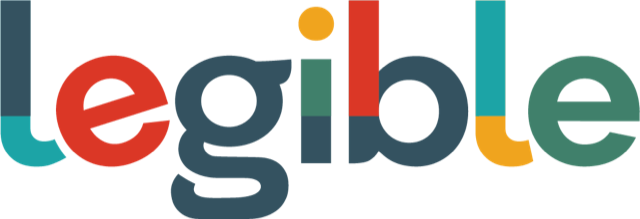Media Publishers of the Web
Facilitator: Robin Berjon
Media publishers have long been absent or under-represented in Web standards, but there is a growing sense that we should speak up in the making of tech and a growing set of members. This session is to share fears, hopes, tips, and more.Minutes (including discussions that were not audio-recorded)
Transcript
Hi, welcome to the Media Publishers of the Web, Unite presentation.
I just wanted to give a few slides of intro and I'm going to go through the slides quickly, trying not to speak too fast at the same time.
The idea is really to trigger some discussion and not to give a final expose on the situation of publishers.
And so, and so I cannot, yeah.
Just a very quick advisory.
These are my opinions.
These slides were deliberately made to be very opinionated so as to trigger discussion.
I think we benefit from frank discussions in these circles.
This does not necessarily represent not only my employer, but any other publisher at all.
So overall, publishers and the web, I can say this because I've been on the non-publisher side of web standards, and in general, the perception of publishers is that it's the people who don't show up and then complain that things don't work the way they would like them to.
So how do we go about fixing that?
Part of the problem is that when publishers don't show up, then other people claim to be the publishers and make representations on behalf of the publishers.
And those representations unsurprisingly are often partially or entirely incorrect.
So what do publishers actually want?
Well, we want a few things.
First we want, you know, ponies, and in general, cool features, cool website features.
But that, I'm not gonna spend a lot of time on that because it's pretty much the same kind of thing that everyone else who builds websites with snazzy, interactive content and nice typography might look for.
But publishers also need two other things.
And my bias is heavily towards news publishers, but these tend to be generally true.
One, we need to be trustworthy.
It's extremely important to create a context of trust in which people will believe what you say.
And two, we need to make money.
Journalism is actually incredibly expensive.
We generally do ourselves a disservice by showing a byline that's just like one or two people.
And that doesn't show the volume of work that goes into producing most articles and especially the large investigations.
So the problem is, and one thing that's quite defining of this moment in publishing is that we've come up with a financial model that is entirely built on betraying the trust of our readers.
And so that tension is extremely problematic and it's become a source of clash today and a source of absolutely necessary reform.
I mean, let's be blunt.
When we talk about betraying the trust of our readers, what's up with all the tracking on news websites?
Apparently we do quite a lot of it.
I mean, there's tons of studies that show that news publishers are absolutely the worst when it comes to having third party trackers on their websites, and people are quite unhappy with it.
Why are they unhappy?
Because they have very strong expectations of privacy.
They expect their browsers, with overwhelming supermajorities, they expect their browsers not to share data with parties other than the first party that they're currently visiting.
They expect their data not to be sold for ads, and they generally feel that they've lost control.
And one thing that's important to surface that, that we've definitely noticed in our research, is that readers do trust the publisher.
You will often see publishers talk about that.
Like we have a relationship of trust, and it's true.
But it's important to understand that that trust is not transitive.
Just because you trust the publisher doesn't mean you trust the third parties that that publisher has, is sharing data to.
And there's a good reason for that.
People talk about the supply chain in ad tech.
And supply chain feels like a very simple, point to point thing, but it actually looks like this.
I've censored out which publisher is involved here.
It's not us.
But basically, you know, this is the supply chain for a single page view of a publisher, and doing, you know, controlling that supply chain, making sure that nothing bad is happening to people in there is extremely expensive and whack-a-mole, and a lot of publishers simply have no control over the supply chain when they show, you know, when they involve third parties too for the readers.
So what does it mean?
Well, it means that tracking-based ads are a problem.
The industry is highly reliant on them, but they decrease trust.
Whenever people look under the hood, they trust the business of publishing less, and when they trust the business of publishing less, they trust the news less.
And when they trust the news less, well, you might have some demographic issues down the line from that.
This use of broadcasted personal data favors monopolies, because their network effects in the value of data.
So it's not going to get any better with a race to the bottom to share more of it.
And it's not, it's just not working.
These are just US numbers, but the situation is pretty similar the world around.
Newsrooms have basically been halved over the past 15 years, and that was before COVID, which is taking a toll.
So this whole system on which the press is currently surviving is unsustainable.
It's opaque, it's full of fraud, and users are fighting back.
We tend to think of ad blocking as something new.
This ad is for the first known ad blocker, which came up in the fifties, which is how people invented the remote control.
And so we shouldn't expect ad blocking to be a thing that'll go away.
People will continue fighting back and we need to solve in such a way that that won't be necessary.
So how can we fix this?
Well, a lot of the proposals to fix this say, Oh, you're just throwing a bit of transparency and choice in there, and that'll be good.
But what that looks like is cookie consent dialogues, CMPs, that kind of stuff.
And users are not duped into this.
They don't see this as an improvement at all.
So, you know, this is a case where we actually need a better web.
Publishers are locked into the current model, and we need to build the technical means to move them out of that model and onto a saner model.
And how do we approach this?
Well, it has to be multi-pronged.
There's no silver bullet.
One thing that's important is to know that privacy can increase audience value.
So, you know, when not everyone has access to your audience, and when it can't be re-monetized outside of the publishers, this helps publishers.
And so that's why several of us came up with the global privacy control to help with precisely this kind of issue.
This can only work if, you know, browsers and SSOs are trustworthy, and if we make sure that they don't betray the privacy again.
For instance, if your website removes all trackers, but the browser is still keeping track of your full reading history, then you haven't solved the problem.
And, in general, we need to approach ad tech consciously as web technologists, with a priority of constituencies.
And that priority should be users, publishers, brands, intermediaries.
The way in which the current tech stack works is the same priority of constituencies in the exact opposite order.
And that's why we're getting users complaining about it.
Robin, question in the chat.
What does SSO refer to?
Oh, sorry.
Sorry, single sign-on, things where you sign onto multiple sites with the same identity such that your identity is now decontextualized.
Very quickly.
What about the content?
We also make concept, we just don't have readers.
And so, very quickly, the problem, the core problem with content is that it used to always be contextualized.
You had like this big piece of paper, it had articles in a certain order.
You knew what you were doing.
You knew who you were getting it from.
There was that big logo with a big name on the front page.
And now everything looks the same.
If you turn to the right, it's like everything is a shiny slab of plastic.
And the thing is context is what anchors trust, it's what anchors identity, it's what anchors expectations.
And so if you move to a world in which your articles are removed from their content, and then presented as sort of like a big bundle of stuff, then you lose that trust relationship.
And so the way in which content aggregation works today is problematic.
And so you can see here presented on the right, a disembodied article looking for its home.
But very seriously, decontextualized content is less trustworthy.
It might work, if you're building a big video website and it doesn't matter if half of it is a dumpster fire and half of it is serious content.
You can have mix and match of that.
But if you try to do that for news content, then you're losing, you're decreasing trust in that news.
And, in general, the current aggregation systems, I'm not gonna name them, but there are plenty and you know them, decrease the user experience.
They increase tracking because the relationship is not with the actual first party.
They also multiply the amount of work that publishers need to do in exchange for pretty much no value to the publishers whatsoever.
And in general, they systematically lower the revenue of journalism.
So, pages that are in that kind of format convert to subscriptions less often, and the advertising income is lower.
So again, how can we fix this?
A bunch of us publishers put together a document called CAT, Content Aggregation Technologies.
It's a proposal to basically look at how the web could do aggregation.
And when we looked closely, it turned out that the web's actually pretty good at aggregation already.
And so there's a few incremental improvements that we can make to solve this and that we feel that we can basically improve the situation markedly.
And there's also a potential, I believe, in indicating provenance better so that you can recognize images across contexts and bring them back to the original context.
We have some research on that.
I'll provide links later.
And so, yeah, this was a high-speed introduction.
Thanks for putting up with my general ranting.
In general, the idea that I want to get across here is that there's an array of problems that are somewhat specific to publishers, even though they impinge on other parts of the ecosystem.
And by bringing publishers into the fold, making sure that publishers aren't afraid to speak up and have market opinions, as I might, then we can work together as technologists to fix that.
I have this slide of links.
What I can do is I will paste these links into IRC, that way everyone has them.
And now the floor is entirely yours.
Please, you know, speak up, complain, push back.
I certainly very much welcome your input.

